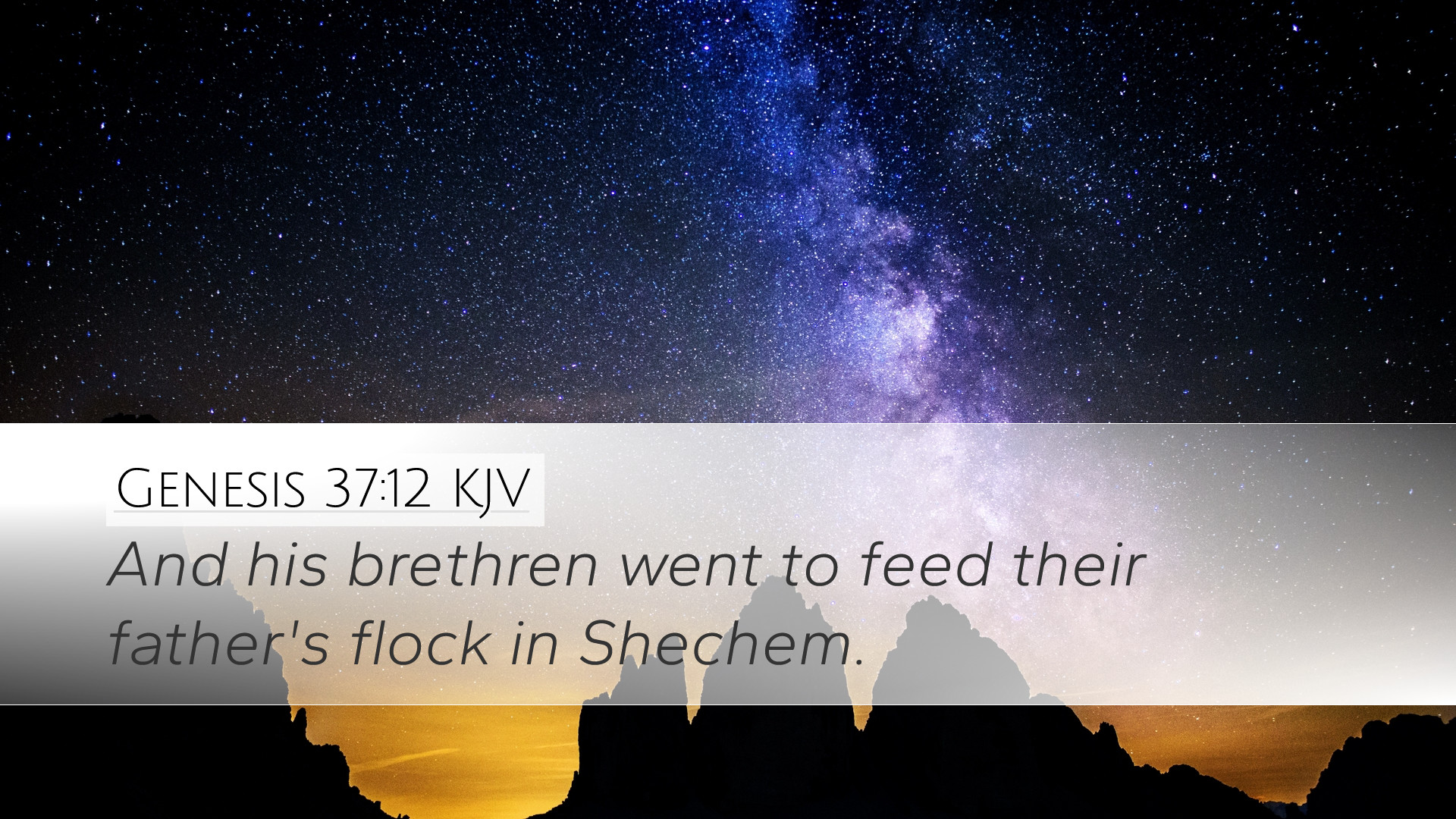Commentary on Genesis 37:12
Genesis 37:12 states, "And his brethren went to feed their father's flock in Shechem." This verse sets the stage for the unfolding narrative of Joseph's story, highlighting significant themes and motifs pertinent to theological study and pastoral reflection.
Contextual Overview
This verse occurs within the larger context of Joseph's early life and the dynamics between him and his brothers. Understanding the background is crucial for interpreting the subsequent events that lead to Joseph's eventual journey into Egypt.
Geographical Significance
Shechem, a city of paramount importance in the Old Testament, represents not only a physical location but also serves as a symbol of the patriarchs' heritage. The setting in Shechem is a reminder of God's promises to Abraham and the significant encounters of the Israelites with their divine heritage.
The Role of the Brothers
Here, the brothers' decision to go to Shechem indicates a familiar familial responsibility to tend the sheep. Their actions reflect the early agrarian society's communal values, yet foreshadow the envy and betrayal that will unravel in the following verses. The contrast between the brothers’ initial task and their later actions establishes tension that is central to the Joseph narrative.
Thematic Insights
Family Dynamics
The relationships within Jacob’s family are complex. Joseph, being favored by his father Jacob, incites jealousy among his brothers. This verse captures a moment of apparent normalcy, which is soon disrupted by underlying tensions.
Divine Providence
Even though the brothers are embarking on a mundane task, God's providential hand is at work. Matthew Henry notes that God's plans often play out amidst ordinary circumstances. This verse subtly introduces a divine narrative that will lead to Joseph's significant role in God's plan for Israel.
Foreshadowing Conflict
The decision of the brothers to feed the flock may seem innocuous, yet it foreshadows the conflict to come. Their subsequent actions, sparked by jealousy and resentment toward Joseph, lead to betrayal. Adam Clarke emphasizes that, even in familial settings, sin can lurk quietly and manifest unexpectedly.
Lessons for Today
This verse offers profound lessons applicable for pastors, students, and theologians, especially regarding family relationships, envy, and God's sovereign plans.
-
Influence of Favoritism:
Jacob's favoritism toward Joseph sets a tragic precedent within the family. This serves as a cautionary tale for today's leaders and parents about the potential for favoritism to breed discord and strife.
-
The Importance of Duties:
The brothers' task of tending the flock is a reminder of the importance of fulfilling our responsibilities faithfully, even amid personal problems within the family or society.
-
Divine Oversight:
This narrative reaffirms the belief in God’s sovereignty, showing that His plans remain in motion even through human failings. It encourages readers to trust in God's providence during challenging times.
Conclusion
Genesis 37:12 serves as a pivotal verse that introduces critical themes in the story of Joseph. By examining the broader context, the relational dynamics within Jacob’s family, and the implications of their actions, we gain valuable insights into the narrative's development. As we reflect on this verse, let us embrace the lessons it offers in understanding relationships, recognizing God's hand in our lives, and adhering to our responsibilities.


